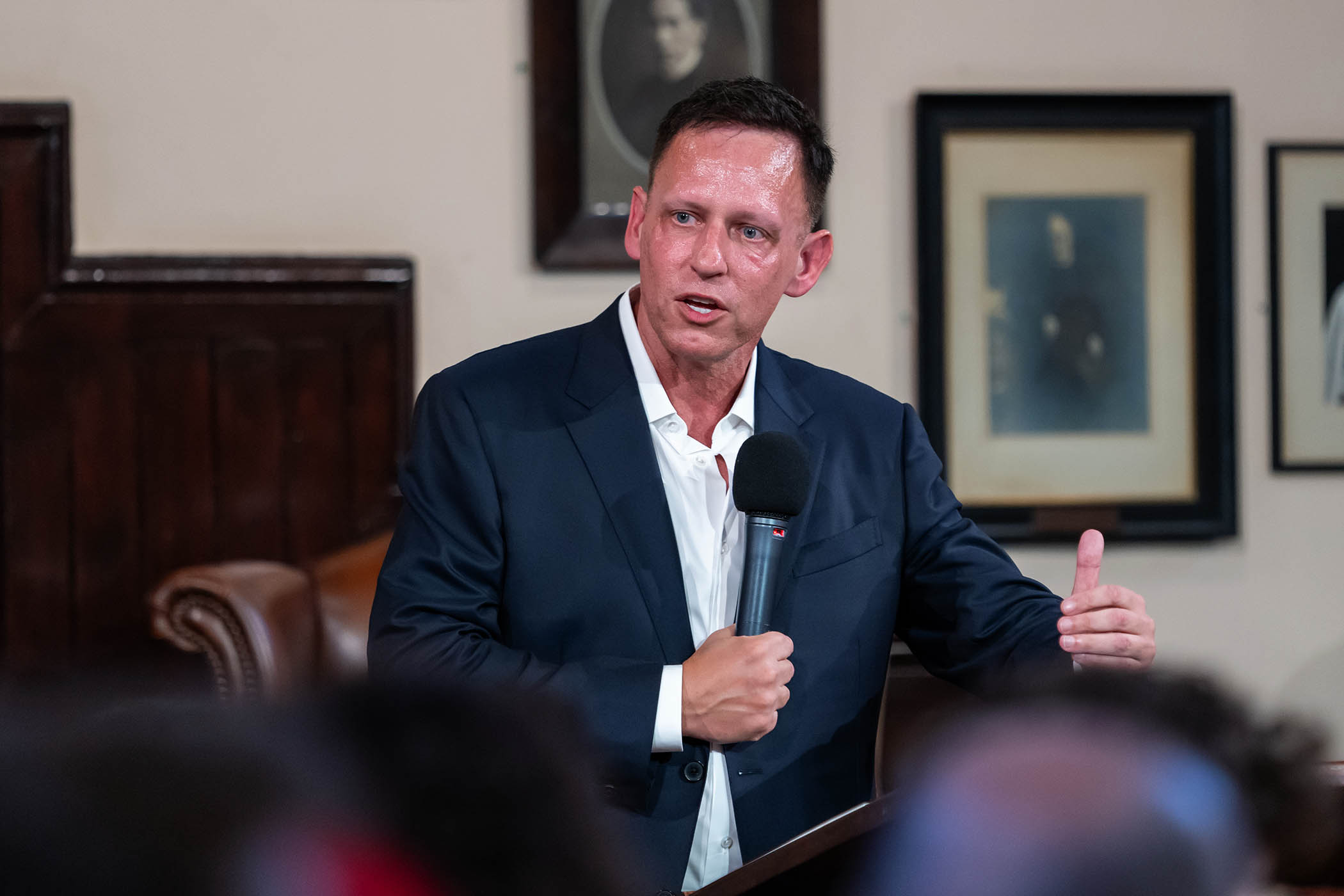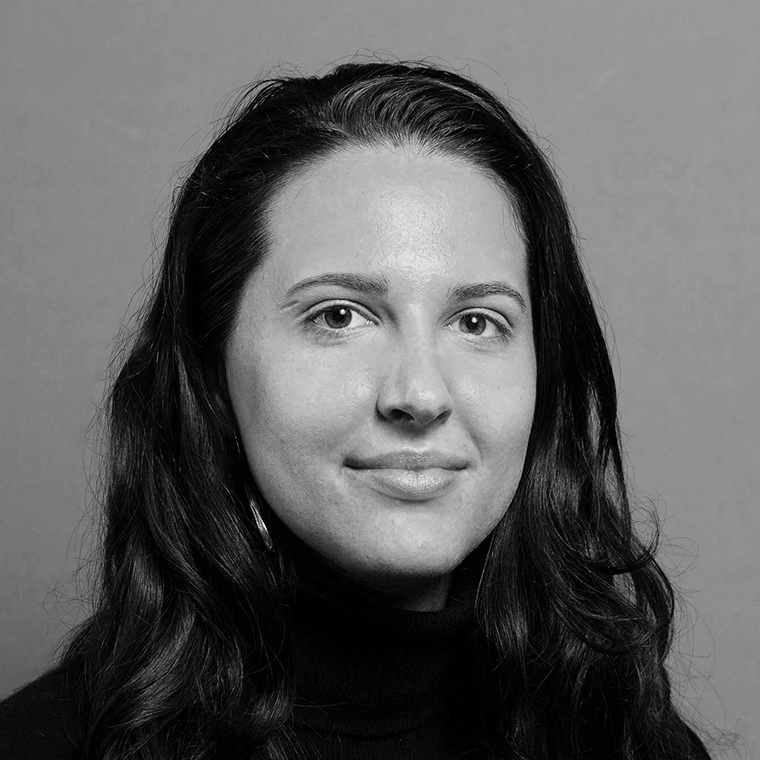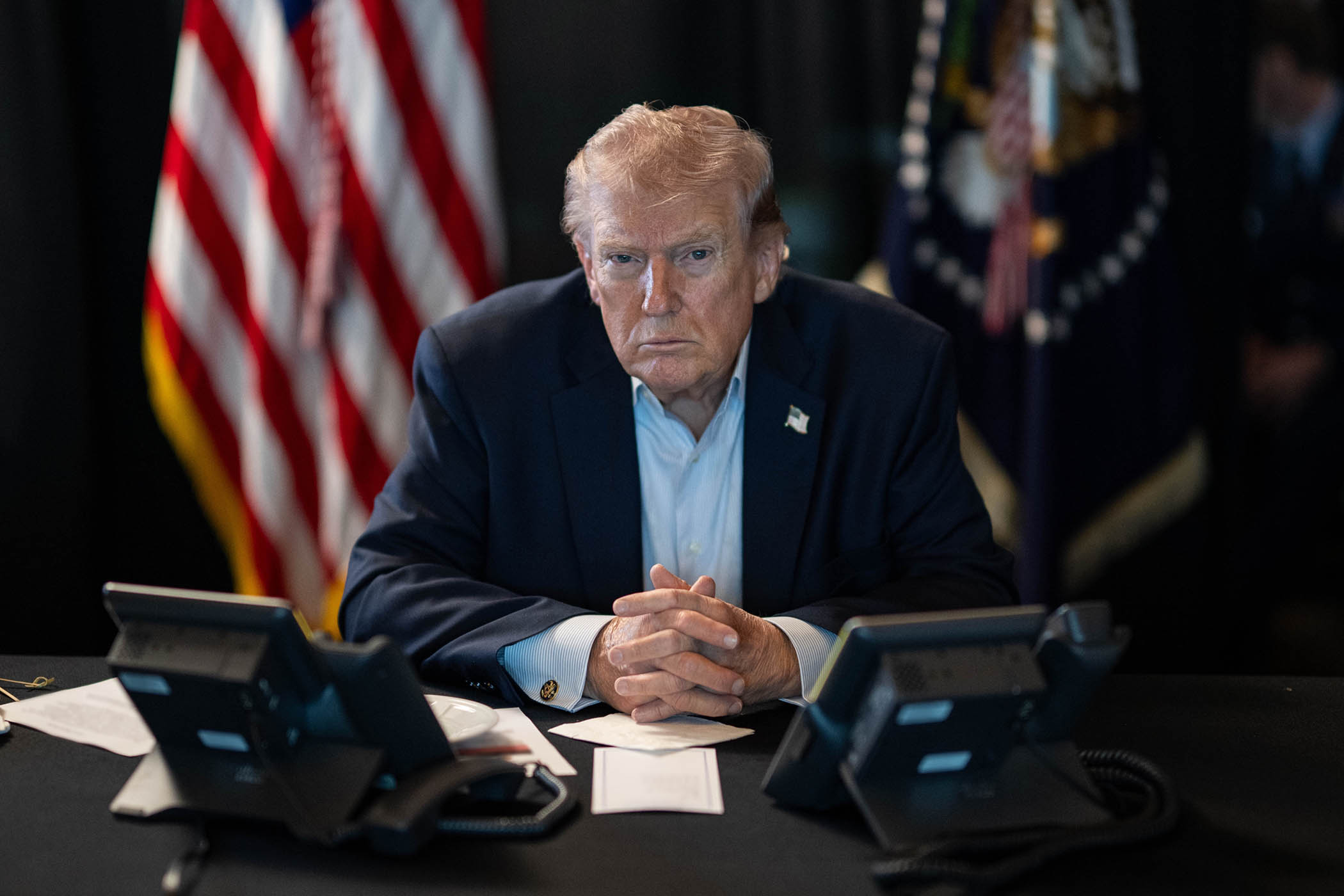This autumn, inside the wood-panelled auditorium of San Francisco’s Commonwealth Club, Peter Thiel spent four weeks delivering lectures on the antichrist.
The billionaire venture capitalist, one of Silicon Valley’s most influential political donors, billed the lectures as private and off the record. Earlier this month the Washington Post published recordings of Thiel railing against regulators and the “legionnaires of the antichrist” – a group he believes includes the climate activist Greta Thunberg.
That seems to have been the point. “It’s a pretty good marketing shtick if you want everybody to hear about something,” Thiel said during one lecture, “not to let anybody in the room.”
Last week, days after the final lecture, the satirical cartoon South Park aired an episode portraying Thiel as a deranged antichrist-hunter, who eventually turns a small town into a surveillance state. The marketing shtick had worked. But what was the message?
Thiel, a committed Christian, claimed that modern society faces two dangers: armageddon on one side, and authoritarian control – what he calls the antichrist – on the other.
“In the 21st century, the antichrist is a luddite who wants to stop all science,” he said in his opening talk on 15 September. This vision of the antichrist is embodied by technology regulators, and the governing bodies that oversee them.
Simon Cross, a theologian and technology ethicist, says Thiel is “drawing attention to things which are… rarely referenced in any way, shape or form in the Bible”. Steven Croft, Bishop of Oxford, said the lectures fit with “what you’d expect a technology company to say… that they want to be free to explore without regulation and to innovate without regulation”.
Still, in Silicon Valley, where Christianity was once taboo, or seen as “backwards” looking, Thiel has found a growing audience among founders and investors. It is part of a wider shift towards Christianity in the area that seems to bear Thiel’s stamp.
Denise Lee Yohn, co-founder of the Bay Area Center for Faith, Work & Tech, attended the talks. She believes Thiel “wants to mobilise and motivate people to do something about [the danger of the antichrist]”. Lee-Yohn said the crowd was open-minded and spiritually engaged – not just made up of the usual Silicon Valley Christians she encounters through her work.
According to journalist Ryan Mac, who has covered Thiel for over a decade, the billionaire’s recent rhetoric is not new but repackaged: the “antichrist” is a scandalous new metaphor for old ideas. Since the early 2000s, Thiel has been warning that western civilisation is in decline, that progress is being strangled by bureaucracy, and that innovation must be liberated from state control.
Newsletters
Choose the newsletters you want to receive
View more
For information about how The Observer protects your data, read our Privacy Policy
To Mac, Thiel’s admission that this is all a “marketing schtick” is telling. He believes Thiel is embarking on a “branding exercise” to set himself apart as he raises funding and seeks out new investments. His brand matters. Thiel’s money and mentorship helped elect Donald Trump in 2016, and in 2024 propelled JD Vance to become Trump’s running mate. Across the US, he has nurtured a generation of conservatives who share his suspicion of bureaucracy and a belief that progress comes from moving fast and breaking things. In Silicon Valley, he is one of the most powerful backers of AI, defence, and biotech companies – industries where innovation free from regulation could cause untold harm.
His antichrist lectures might be an attempt to turn an economic worldview into a moral one. As Croft put it: “There’s always that double meaning of prophet, isn’t there? Is he a prophet, or is he chasing profits?” Thiel seems content to let others decide.
Photograph by Nordin Catic/Getty Images for The Cambridge Union



